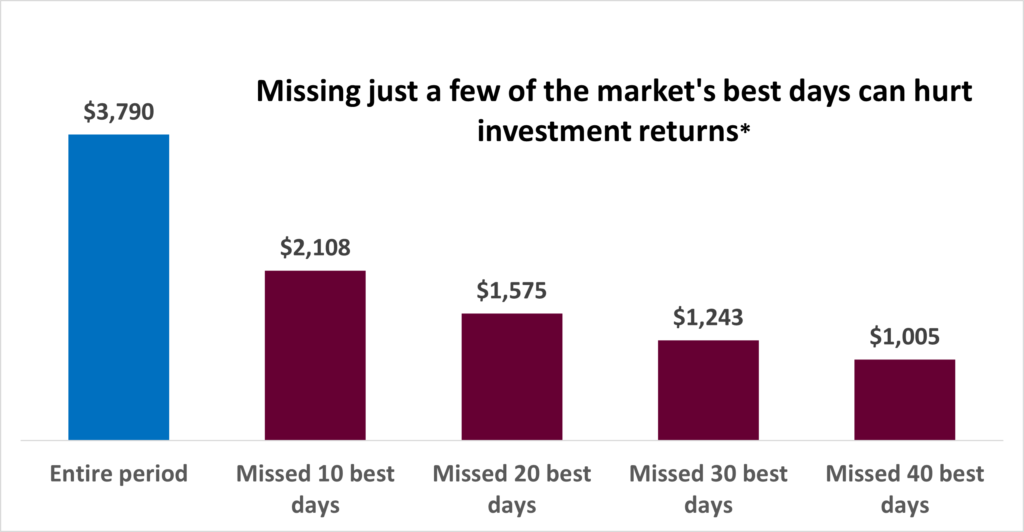Prognosticators provide a myriad of reasons why you should not invest – inflation, increasing interest rates, the threat of war, and high P/E ratios. But the truth is that no one can predict what will happen in the month, quarter, or year ahead. What we do know is that investors experience their best results when they have a plan and stick with it – rain or shine.
At the recent Money Matters conference, we heard from two investment experts, James Derrick, Chief Investment Strategist at SFS, and Max McQuiston, Wealth Management Consultant at Capital Group. They shared valuable insights on investing.
Max shared a study that was done by Capital Group, home of American Funds. The study showcased what happens to investment returns when investors try to time the market.
Using the S&P 500 as an example, an investment of $1,000 made at the beginning of 2012 would have grown to $3,790 by the end of 2021. But if the investor missed just the 10 best trading days during that period, the investment result would be $2,108. That is 44% less. If the investor missed the 30 best days, the investment would drop to $1,243, missing 67% in value.*
The point this example drives home is how can an investor determine which days in the future will be positive or negative?
The reality is that no one can predict future market movements. To receive the benefit of investing, one must remain invested. When things get volatile, remember this: Every S&P 500 decline of 15% or more, from 1929 through 2020, has been followed by a recovery. The average return in the first year after each of these declines was 55%.
When markets are volatile, and it seems like everything is in turmoil, recency bias leads us to think that things are only going to get worse. Thankfully, this is not the case. Markets will continue to fluctuate as they have in the past, and there will also be investment opportunities.
If market volatility has you feeling jittery, reach out to our wealth management team. This is the time to review your plan and focus on your values and goals.
Listen to a deep dive about investing now on the Power Up Wealth podcast.
*Value of a hypothetical $1,000 investment in the S&P 500, excluding dividends, from 1/1/2012 to 12/31/2021. Investing involves risk, including the potential loss of principal. The S&P 500 index is widely considered to represent the overall U.S. stock market. One cannot invest directly in an index. Past performance does not guarantee future results. The opinions and forecasts expressed are those of the author and may not actually come to pass. Diversification does not guarantee results. This is not a recommendation to purchase any type of investment.






One Comment